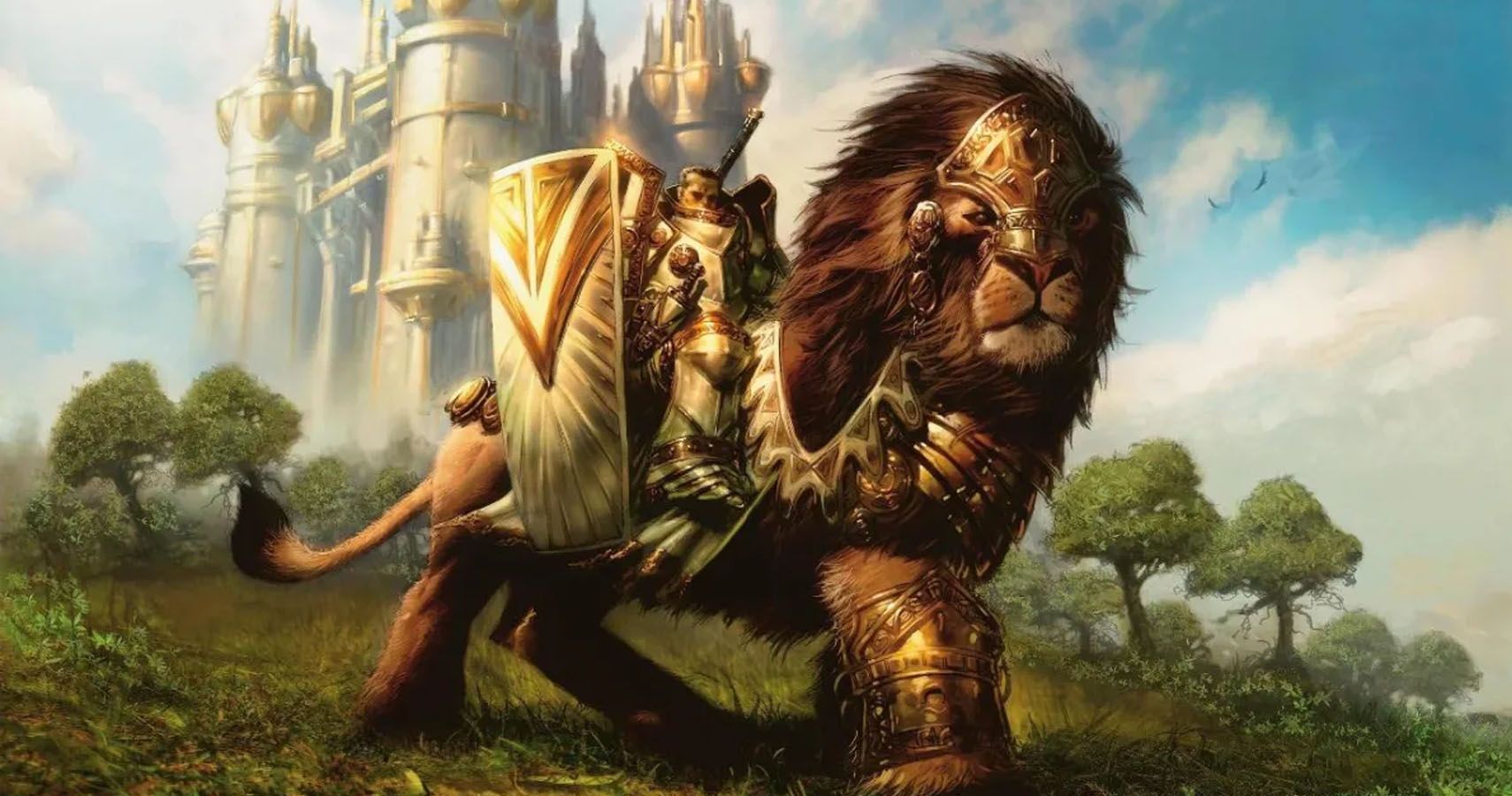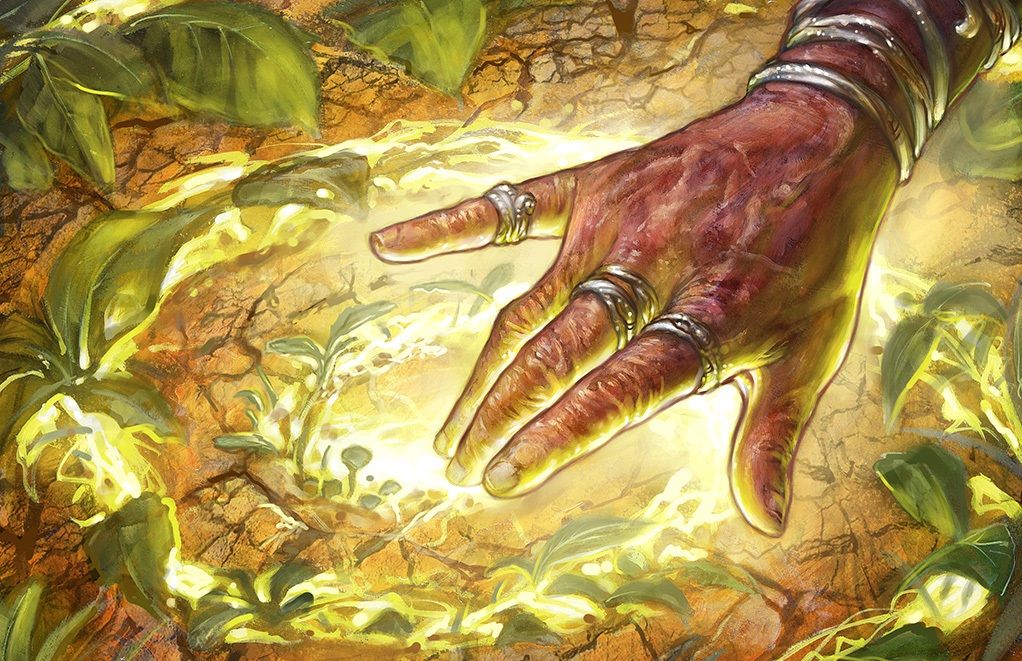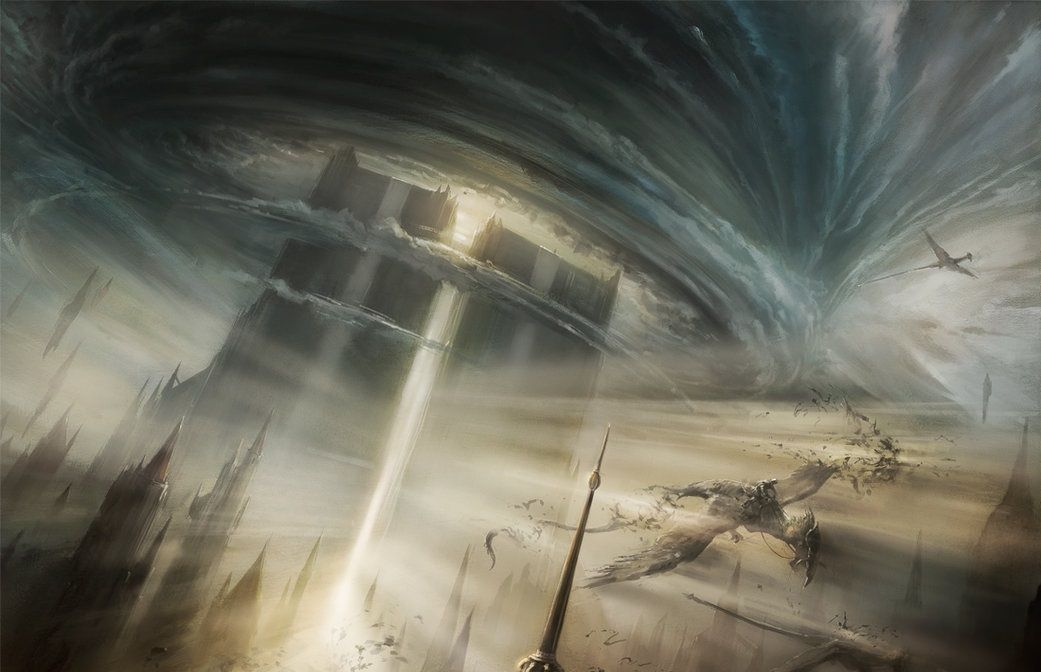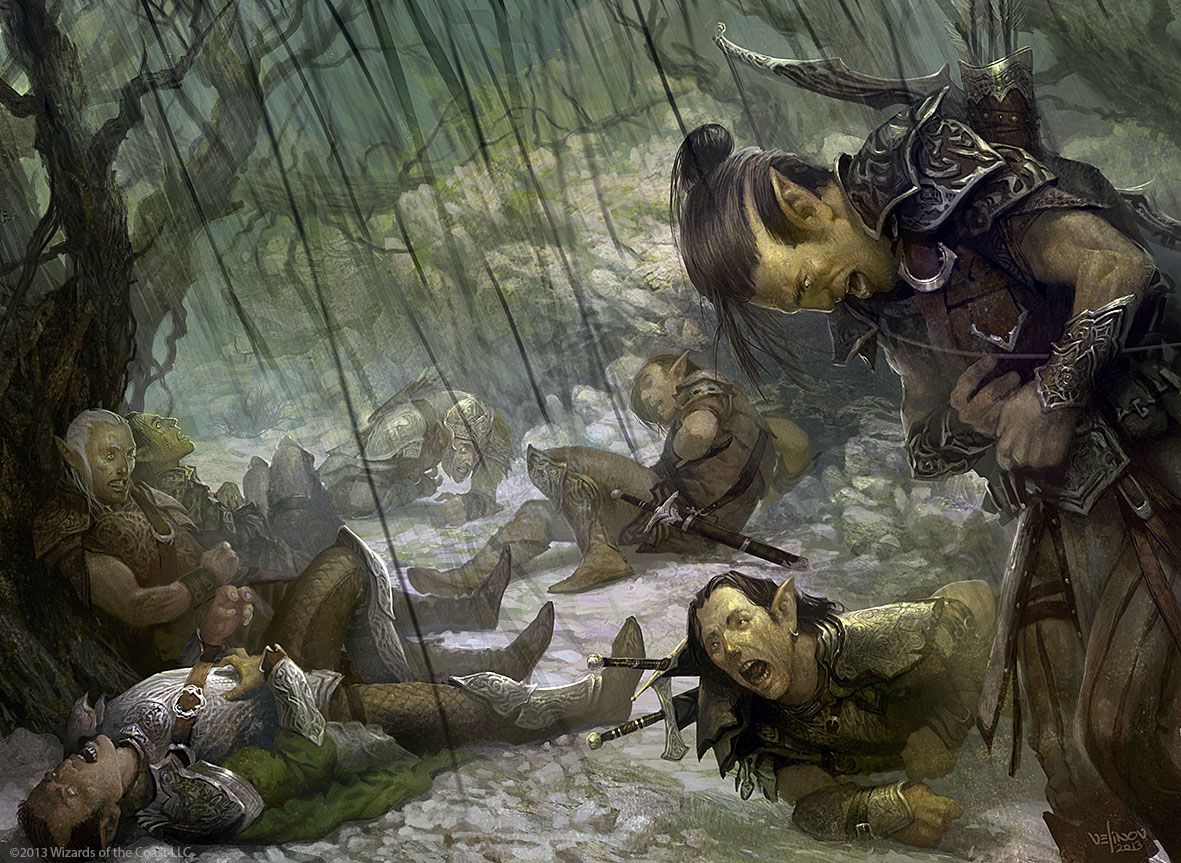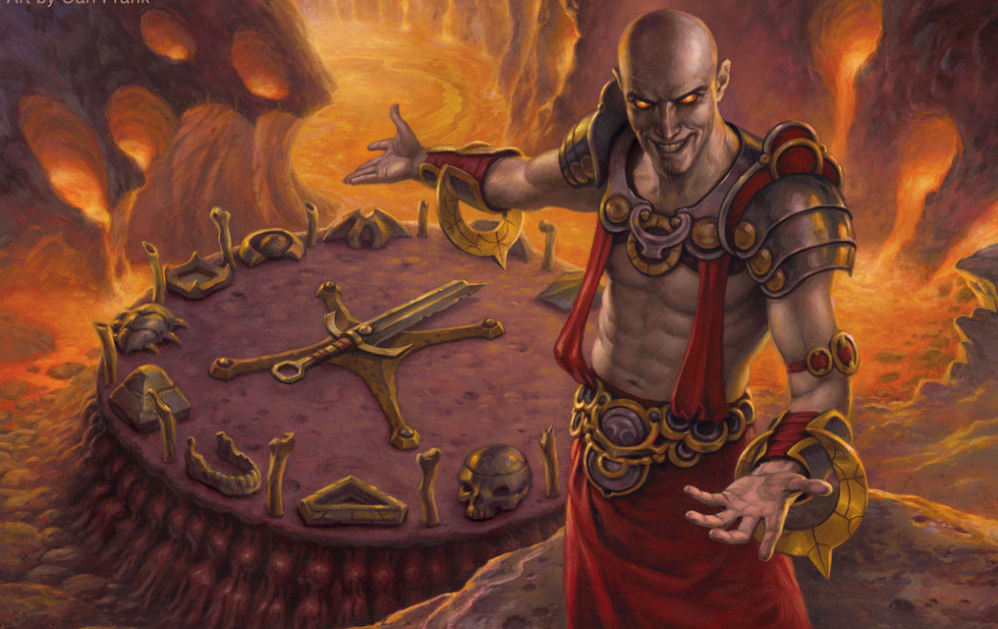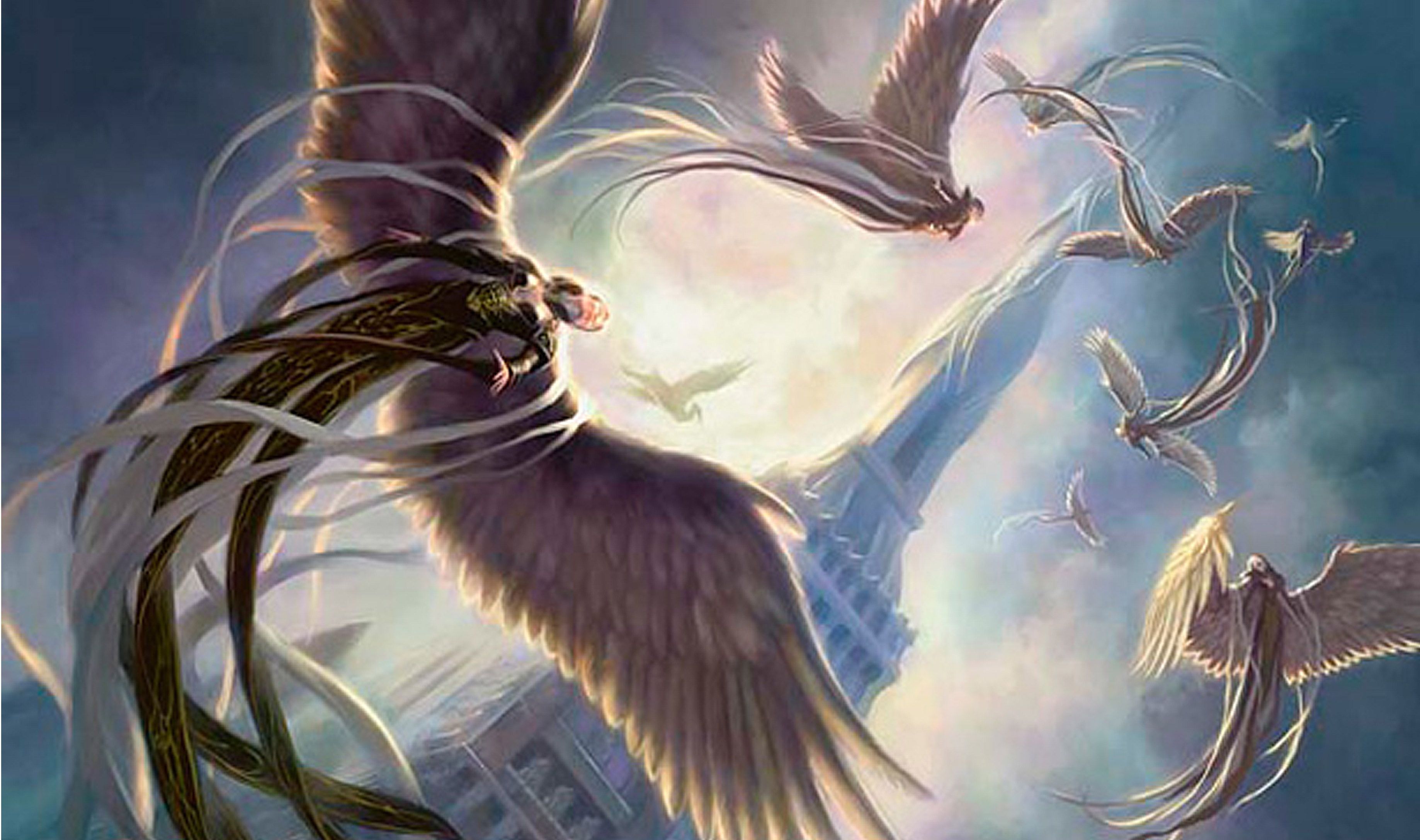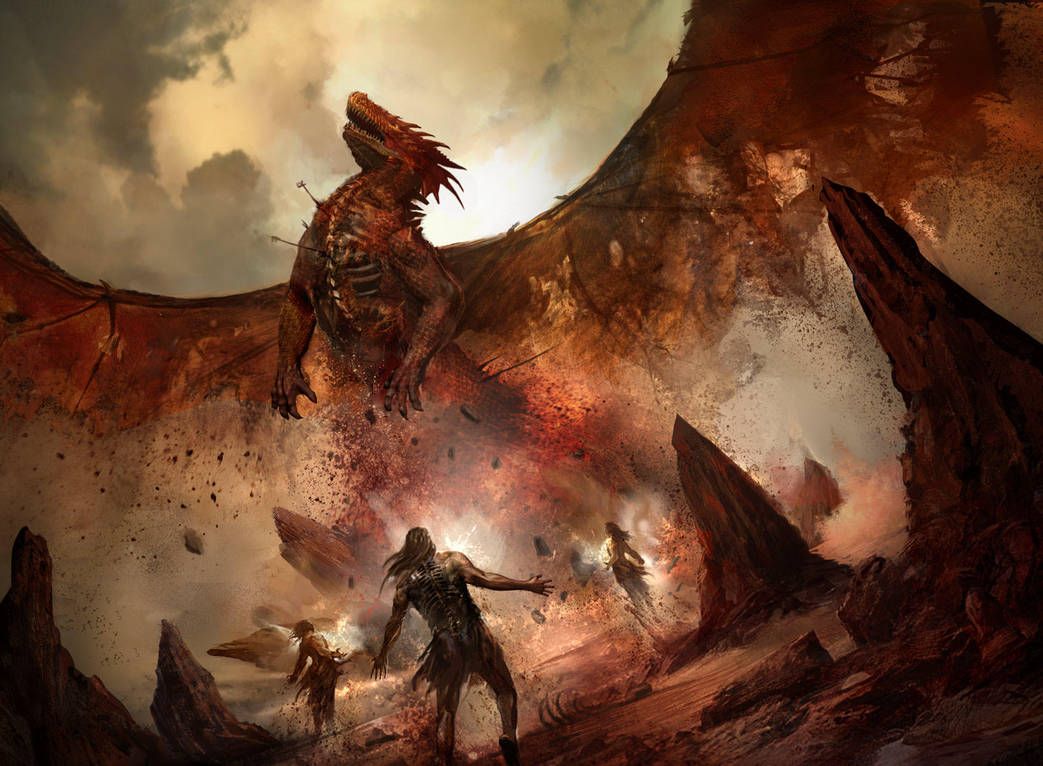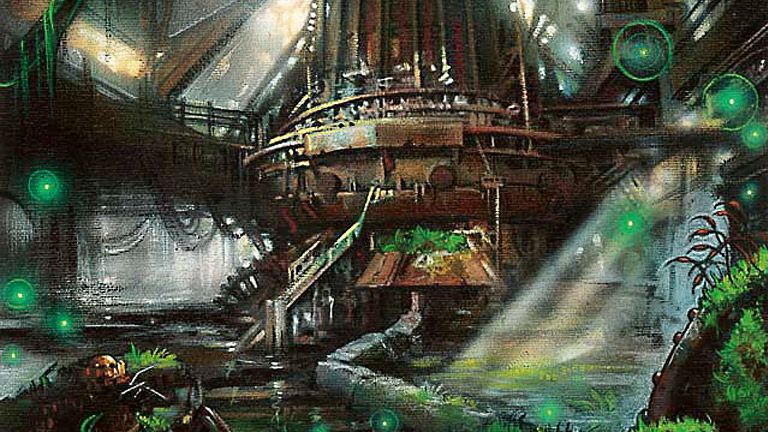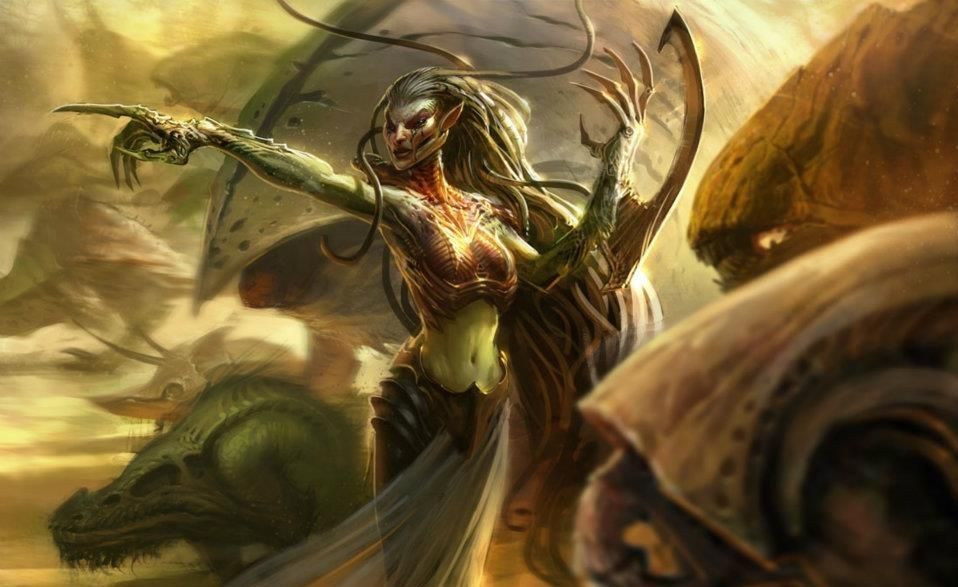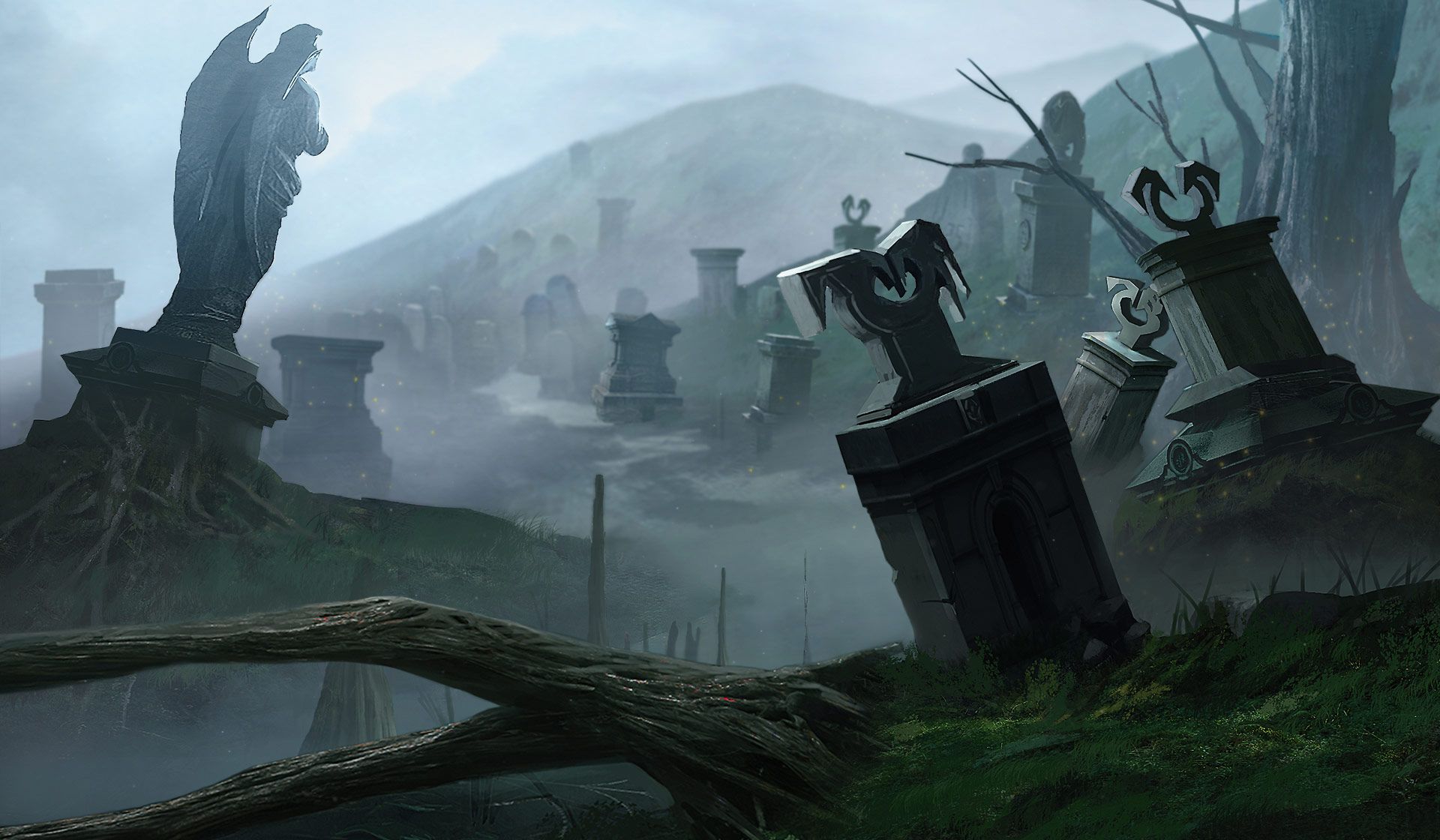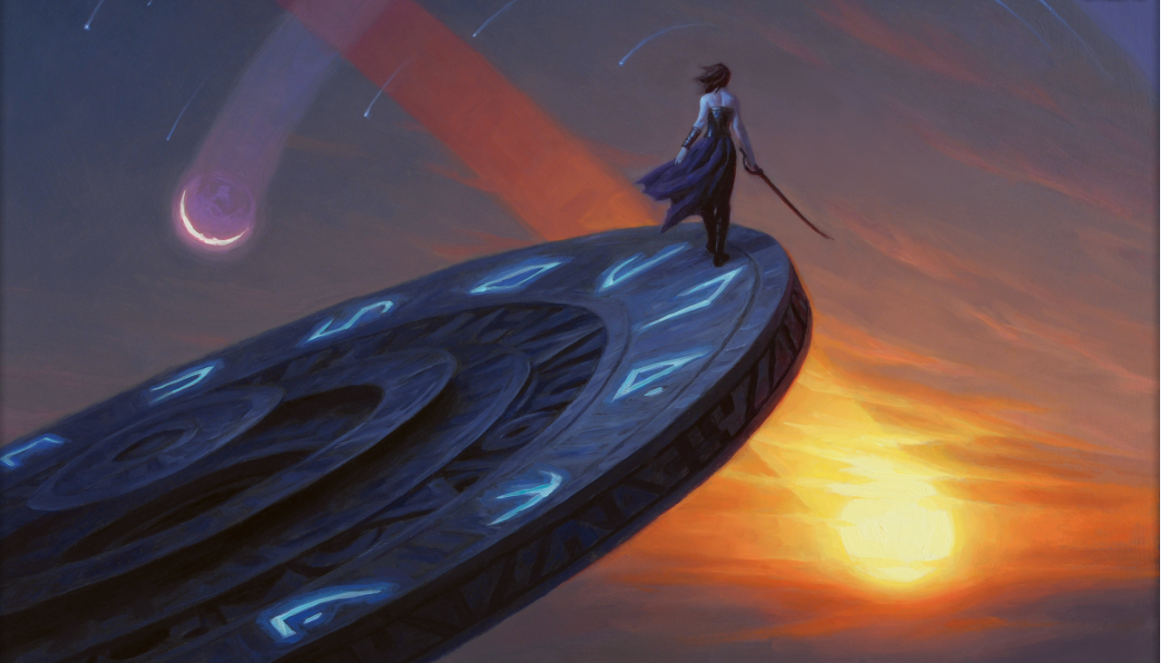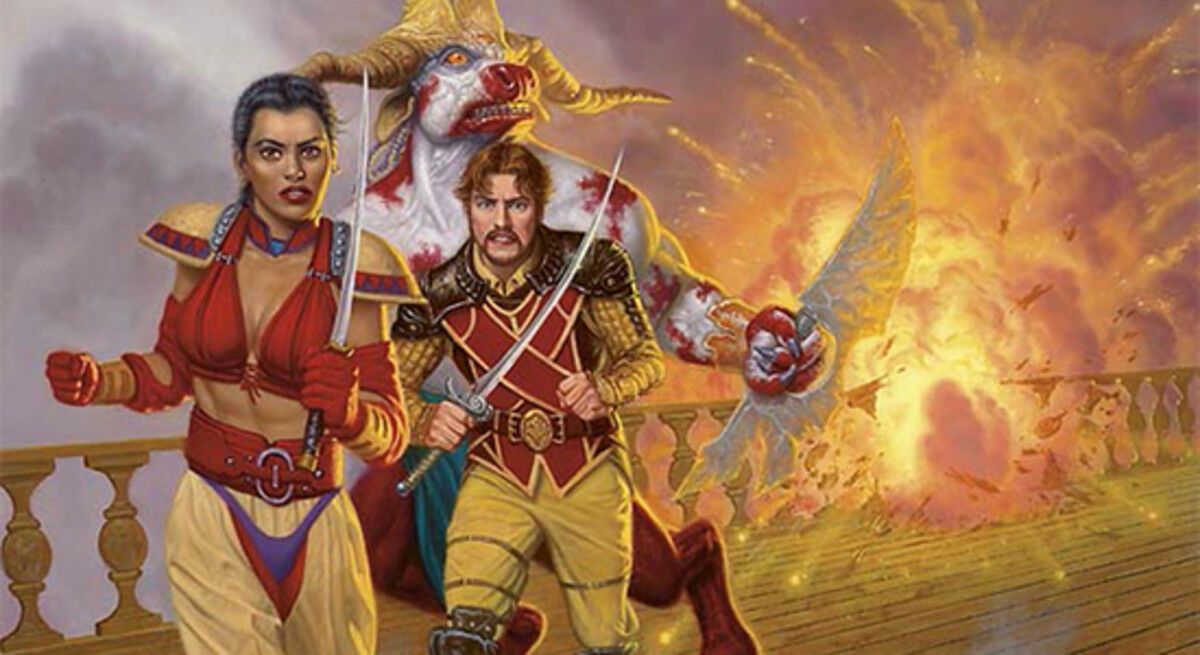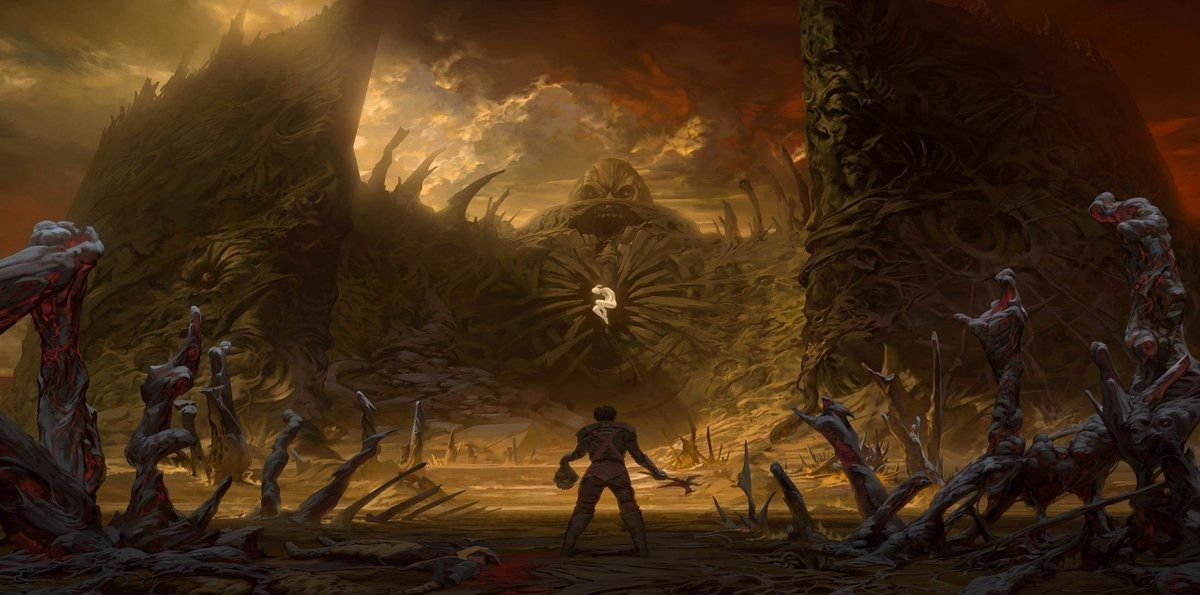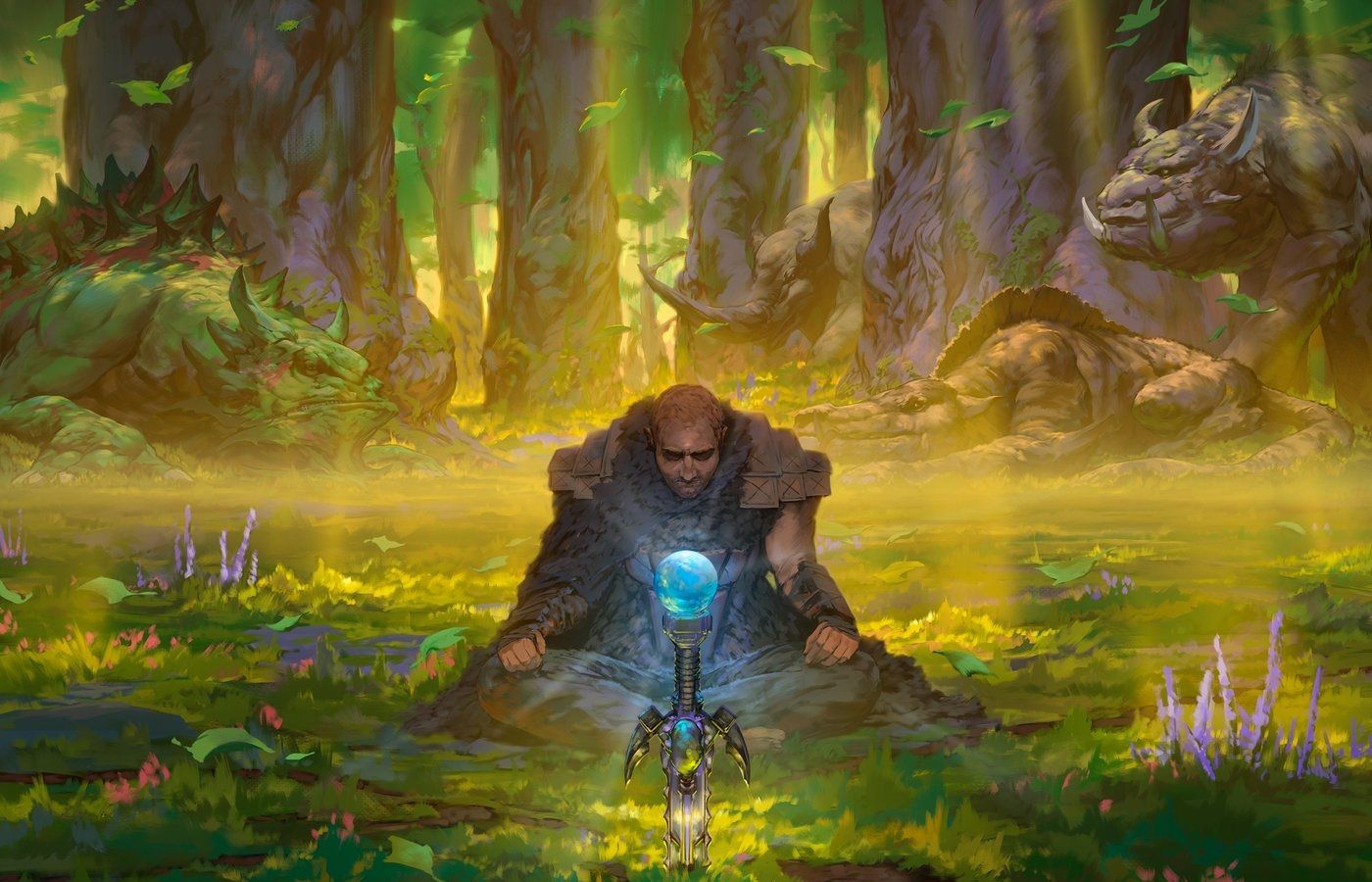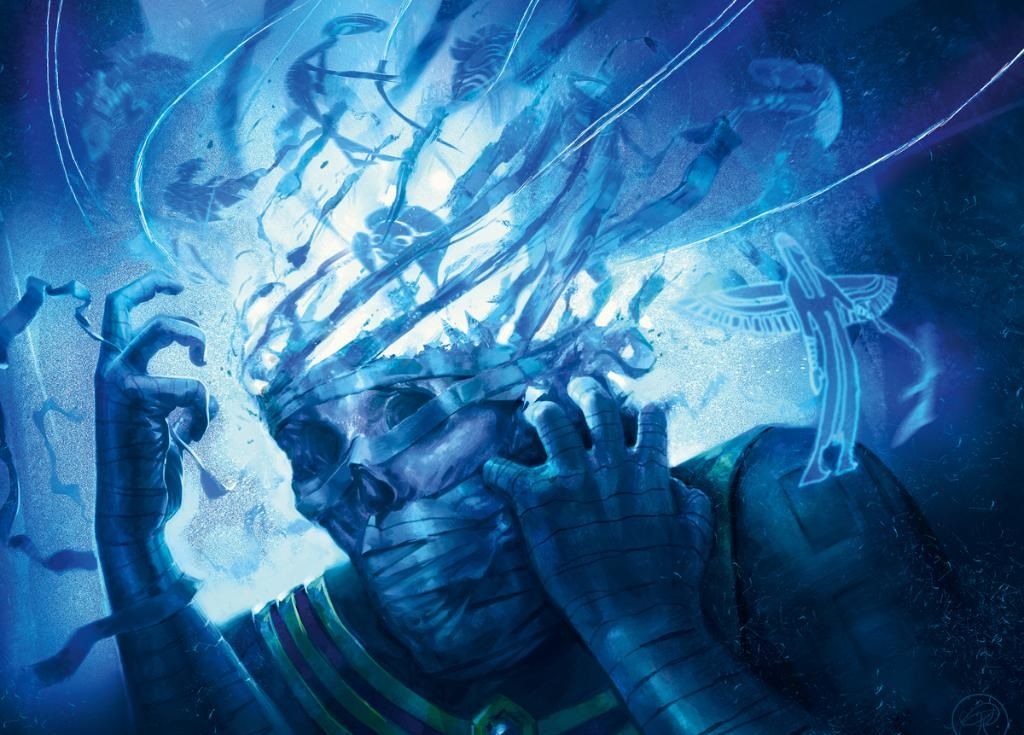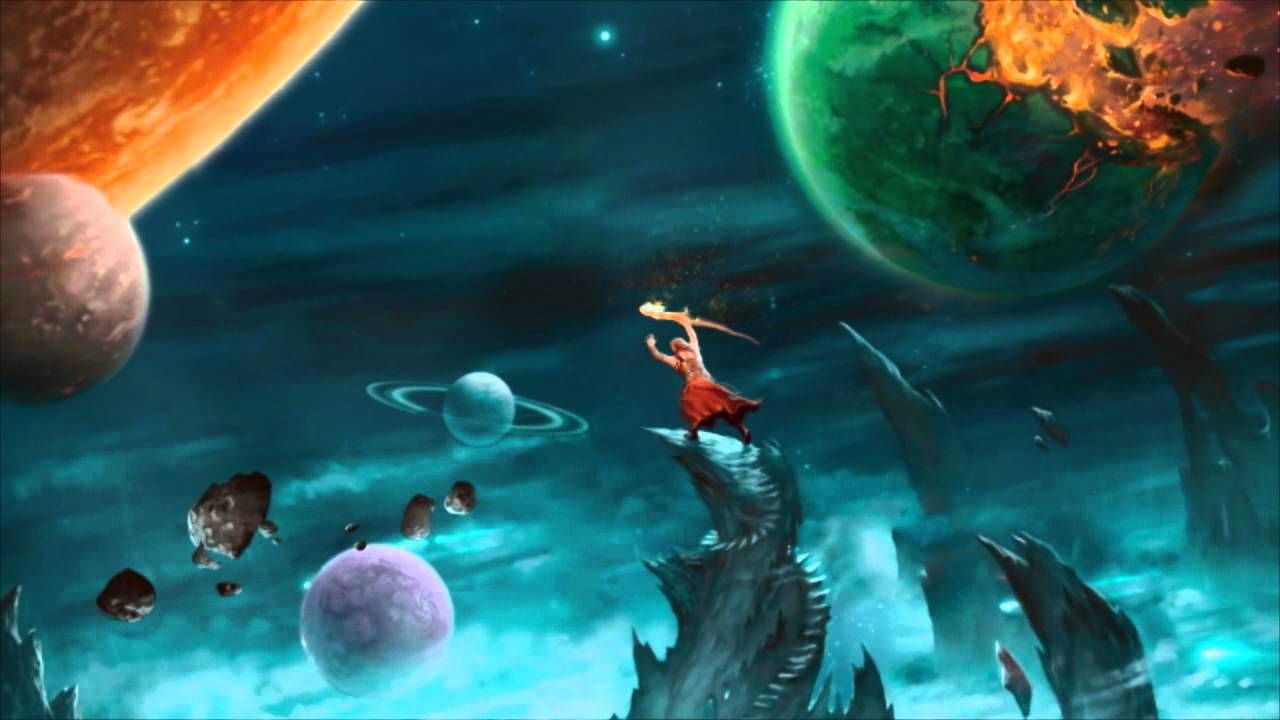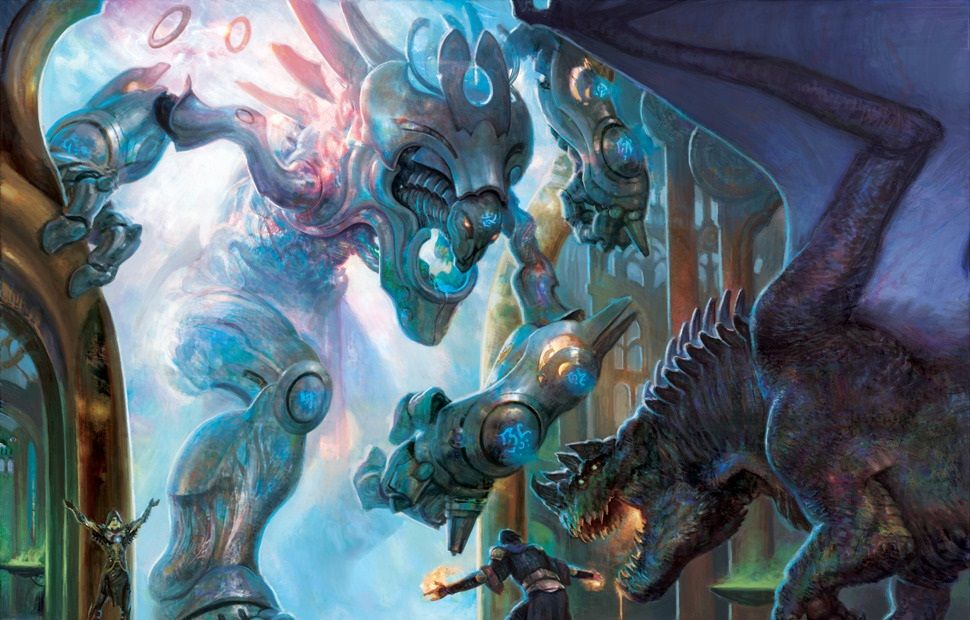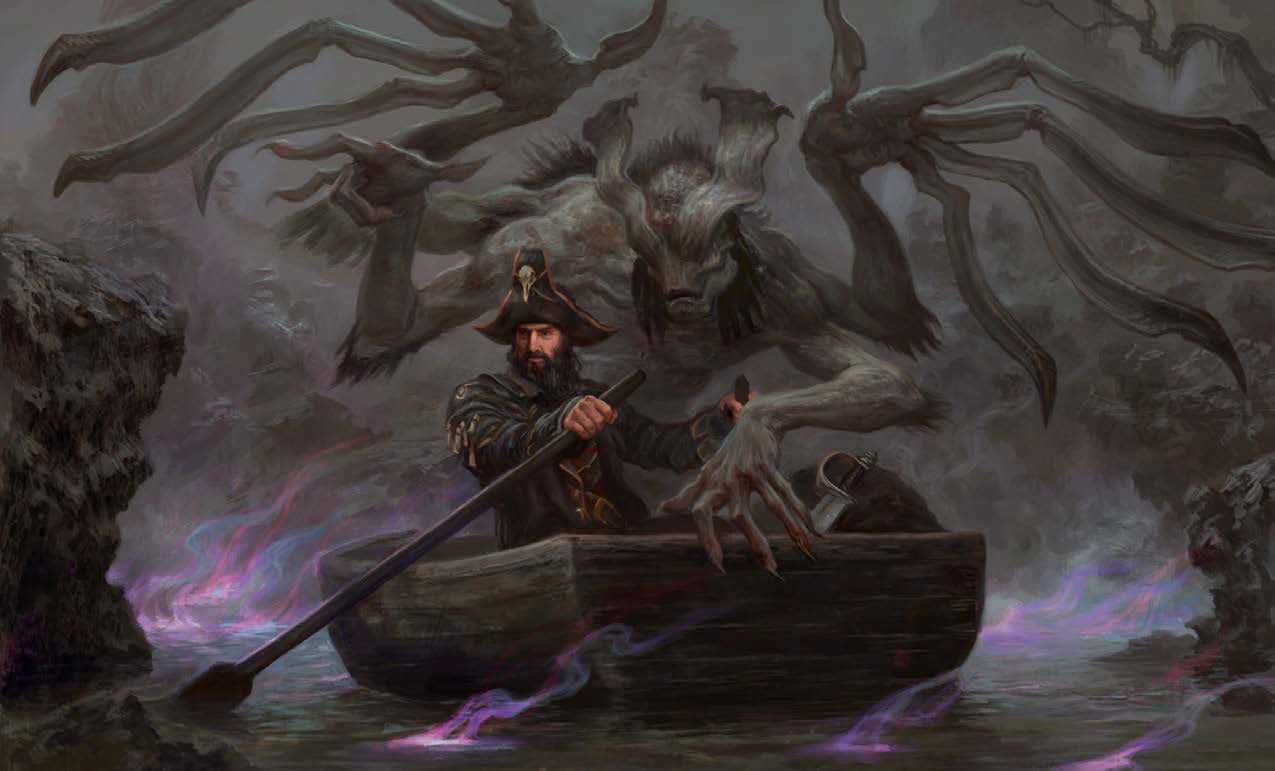For over twenty-five years, the world of trading card games has been unequivocally dominated by the five-mana symbols of Magic the Gathering. The brainchild of Richard Garfield, the game has largely remained unchanged since it first debuted. The game primarily uses five different card types: land cards which can be used to power up other spells, creature cards used to attack and defend from opponents, enchantment cards to enact new, lasting rules on the game, instant spells to cause new, short-term effects and abilities at any point in the game, and sorceries which has similar outcomes to instants but can only be used at certain phases of the caster’s own turn.
Because of their limitations, sorceries are sometimes considered to be the least of these five basic card types. However, that discounts the numerous advantages that sorceries can provide to players. In fact, some sorceries are so ludicrously powerful that they essentially break the game and using them can sometimes feel more like cheating that actually playing. This feeling can be the result of the sorcery costing less than its effect is worth, having an effect that saves or ends the game in the caster’s favor, or the substantial leg-up they give their users. Ultimately, sorceries are one of the most important parts of the game and deserve to be recognized as such so here’s a list of twenty ways to cheat your way to victory in Magic by using them.
MANA TUTORS GIVE EARLY GAME ADVANTAGES
In Magic, speed is everything. The faster you’re able to cast spells, the fewer opportunities your opponents will have to do the same. To that end, one of the most significant advantages a player can have is to get extra mana sources out early. That’s where a handful of powerful, mana ramp sorceries come into play.
Kodama’s Reach and Cultivate both cost 2G and allow players to fetch two basic lands from their libraries, put one into play, and put one into their hand. Nissa’s Pilgrimage is a more powerful version that, under the ‘Spell Mastery’ circumstances, can grab an additional land. However, the most efficient of these land tutoring sorceries is perhaps Farseek, which, for a mana less, can search for a nonbasic Plains, Island, Swamp, or Mountain and put it into play tapped.
USE OP BOARD WIPES TO STOP A PLAYER'S MOMENTUM
Board wipes are a crucial part of any good EDH deck. Essentially, they can reset the state of the game by completely destroying vast portions of the board, stopping players who have grown too threatening or buying a few precious turns to regroup one’s resources. Normally, board wipes can be taken in stride, just like any other obstacle Magic can throw at a player, but some sorceries are just too OP to be fair.
For example, Supreme Verdict destroys all creatures, but cannot be countered or prevented. Merciless Eviction not only allows a player to chose the type of card they want to wipe from the board, but exiles them into oblivion as opposed to simply destroying them. The most powerful may be Hour of Revelation, which for WWW can destroy all non-land permanent cards instead of just creatures.
TAKE ADVANTAGE OF THE ZENITHS AND THEIR RECURSION
The Mirrodin Besieged expansion set introduced players to the “Sun’s Zenith” cards. One for each color of Magic, the Zenith cards are five rare instants or sorceries with X in their mana cost and corresponding effects. Blue and White Sun’s Zeniths are both instants, but Red, Black, and Green Sun’s Zeniths are sorceries.
Red deals X damage to a creature and has the potential to exile it, Green tutors a creature that costs X to the battlefield for just an additional G, and Black puts X -1/-1 counters on all creatures, making it basically a board wipe that can take out indestructible or otherwise untouchable targets. However, the best part of these cards isn’t their powerful effects or low costs, its that all of them get shuffled back into their owner’s library after resolving, allowing them to be played multiple times per game.
TOXIC DELUGE CAN DESTROY THE INDESTRUCTIBLE
Board wipes are an invaluable, desperate resource for players in a fix, but don’t always get the job done. There are some creatures, such as the Theros and Amonkhet god cards, that are indestructible and cannot be destroyed by combat or effects. That’s where Toxic Deluge becomes suddenly relevant.
For the low, low cost of 2B and X life, Toxic Deluge causes all creatures to get -X/-X until end of turn. Because this isn’t combat or a “destroy” effect, this card has the ability to send god or otherwise indestructible cards to the graveyard simply by paying life. Even if your creatures are destroyed as well, Toxic Deluge’s mana cost is so low that you can easily rebuild a sizable board state in the same turn.
USE WHEEL EFFECTS TO HURT OPPONENTS AND OPEN UP POSSIBILITIES
Of all the effects in Magic, on of the best is the so called “Wheel.” Named after the sorcery card Wheel of Fortune, one of the first in the game, wheel effects cause certain players to discard their hands and draw new ones. The advantages this provides are numerous. For one, card draw is innately good because it means players have more options in terms of what they can play.
Cards like Wheel of Fortune itself and Windfall can also cause other players to discard as well, but on the caster’s time. This could possibly deprive them of key strategic pieces and disrupt their plans. It’s a risky gamble, as players may be tossing away their own future combos, but it can be worth it in the short term, especially if one has recursion spells to mitigate the loss.
USE ULTIMATUMS TO GET MULTIPLE EFFECTS OFF ONE CARD
The five “Ultimatum” sorceries were introduced in the Shards of Alara expansion set. Each Ultimatum was a singularly powerful, high-cost spell that reflected one of the five titular mini-planes that made up the shattered world of Alara.
Violent Ultimatum destroys up to three uninhibited permanents, Clarion Ultimatum allows a player to search their decks for cards they already have on the battlefield, Brilliant Ultimatum can let players cast some of the top five cards of their libraries for free, and Titanic Ultimatum gives all creatures a player controls a significant power and mechanic boost for the turn. The most powerful, however, is arguably Cruel Ultimatum, which forces a player to sacrifice a creature, discard three cards, and lose five life and allows the caster to do the reverse.
MIRACLE CARDS CAN BE CAST FOR CHEAP
One of the rarer mechanics ever printed in Magic, the Miracle ability is appropriately overpowered to a ludicrous degree. If a card with Miracle is the first card that a player draws in a turn, it can be cast for a fraction of its usual price. The ability is specific to instants and sorceries, some of which are borderline game breaking considering how low they can be cast for.
For example, Terminus not only wipes the board, but puts creatures in the least attainable place in the game: the bottom of their owners’ decks. Likewise, Devastation Tide returns non-land permanents to their owners’ hands, forcing them to be recast. Entreat the Dead returns creatures from the graveyard directly to the battlefield while Entreat the Angels can make a small army of flying angels. However, the best Miracle card is Temporal Mastery, which can give a player a priceless extra turn.
TAKE ADVANTAGE OF GROUP GAMES WITH TEMPTATION CARDS
One of the most popular play-styles of Magic is EDH, also called Commander, which typically involves a multi-player game of three or more participants. In such an environment, inter-player politics becomes just as important as the cards themselves. This makes the “Tempt With” sorcery cards invaluable as they allow the caster to use its effect, then allow other players to copy the effect, and then copy the effect for the caster for each player who was tempted into using the ability.
For example, Tempt With Discovery allows the caster to search their library for any land card and put it onto the battlefield with no drawbacks. Any other player may do the same, but if any do, the caster will get to search for another land. It endears the caster to other players due to the group-helping dynamic of the card, but ensures the caster still remains at an advantage.
DREDGE MECHANIC BREAKS CARD DRAW
It’s widely agreed upon by Magic players that Dredge is the single most broken mechanic ever printed in the game. Not only does it dig through a player’s deck to get to better cards underneath, it can also put other dredge cards into the graveyard returns a usable card to the player’s hand. All at the simple expense of loosing a draw step. Only a couple of sorceries have the Dredge ability, but one of them is Life from the Loam.
Costing only 1G, Life from the Loam lets players return up to three land cards from their graveyard to their hand. The player can then use Dredge to put the top cards of their library into their graveyard and return Life from the Loam to their hand, potentially putting more lands into their graveyard to get back with the card. It essentially revokes the only drawback of the mechanic.
USE OVERWHELMING INFECT WITH TRIUMPH OF THE HORDES
When it comes to strategic aggression in MTG, there is perhaps no greater sorcery than Triumph of the Hordes. For 2GG, it makes all creatures a player controls slightly stronger and gives them the trample ability, which allows them to roll over damage from a defending creature onto a defending player, and infect, which lets them deal damage in the form of -1/-1 and poison counters, until end of turn.
The combination of the three can be devastating as it only takes ten poison counters for a player to lose a game. By making the creatures stronger and giving them trample, Triumph of the Hordes puts a player in immediate jeopardy so long as the caster has enough creatures that an alpha strike can swarm an opponent’s defense.
GET TWICE THE ARMY WITH HALF THE COST, PLUS RECURSION
Some cards in Magic are just so good that they kind of break the game by themselves. A good example is Army of the Damned. For a the high cost of 5BBB, the sorcery puts thirteen 2/2 zombies onto the battlefield. For those who don’t feel like doing the math, that’s a total of twenty-six power that comes from an eight-drop card, less than half of the resulting effect.
It can be a saving grace that protects a player against an onslaught of attacks or the tipping point in a close bout and its high cost can be circumvented by free-cast spells or mana ramps. But the real beauty of the Army isn’t its cost-to-outcome ratio, it’s its Flashback mechanic. For an extra 2 mana, it can be cast again from the graveyard, giving a total of fifty-two power for only eighteen total mana.
GET EXTRA TURNS WITH NO DRAWBACKS
In Magic, there’s no advantage like getting an extra turn. The act in and of itself allows players to cast more advanced cards while their opponents are forced to wait until the extra turn has passed to retaliate in any capacity. Most of the best extra turn cards happen to be sorceries and they constitute some of the most powerful in the game.
They often have drawbacks to keep them from being too overpowered, for example Chance for glory and Last Chance both cause you to lose the game if you don’t win during your extra turn, but several of them, such as Capture of Jingzhou, Temporal Manipulation, and Time Warp have absolutely no downside whatsoever. The most powerful is possibly Time Walk, which provides an extra turn for just 1U, but it could be contested with Expropriate, which under the right circumstances can give a player multiple extra turns.
INSTA-WIN WITH COALITION VICTORY
There are very few cards in Magic that allow a player to win instantly as such abilities are just asking to be exploited in cheap and underhanded ways. But Coalition Victory is one that has somehow remained legal in most formats despite being severely overpowered. Upon casting, at the cost of 3WUBRG, a player wins the game so long as they control a basic land of every type and a creature of every color.
At first glance, this seems like a high order, but consider that mana tutors can easily fetch for all five basic land types within the first few turns and that multi-color creatures can fulfill the other requirement with only two or three creatures on the field. The only thing going against this card is its high cost, but that can be dealt with mana rocks like Chromatic Lantern and Sol Ring.
YAWNGMOTH'S WILL OPENS UP A WHOLE NEW RESOURCE
At its core, Magic is about using resources to one’s advantage. This typically boils down to correct management of a player’s hand, board, and mana pool. Anything that can expand those spaces, either by drawing cards, playing cards, playing land, or resurrecting cards, is innately a good thing as it adds to the number of options a player has.
But then a card like Yawgmoth’s Will comes along and changes that dynamic entirely. With Yawgmoth’s Will, a player can cast cards from their graveyard as if it were their hands. This essentially creates a fourth resource pool that can be played and worked with, at least until end of turn. But considering it costs only 2B to cast, it can leave enough mana to make some serious moves in a single turn.
LEGENDARY SORCERIES HAVE BIG EFFECTS WITH ONLY ONE CAVEAT
The Dominaria expansion set’s emphasis on legendary spells had mixed results, but one of the best things to come out of it were the six legendary sorceries. While they can only be used if the caster controls a legendary creature or planeswalker, each of them have huge ramifications that result in powerful effects.
Jaya’s Immolating Inferno can deal an indeterminate amount of damage to three separate targets while only paying for one, Karn’s Temporal Sundering gives a player an extra turn, and Yawgmoth’s Vile Offering exchanges a creature in a graveyard with one on the battlefield, and Urza’s Ruinous Blast is a super-effective board wipe. But the real kicker is Kamahl’s Druidic Vow which allows a player to look at some of the top cards of their deck and put all lands and legendary permanents with a low enough mana cost onto the battlefield for free.
USING TAUMATIZE TO CUT AN OPPONENT'S OPTIONS IN HALF
There are a lot of cards in Magic that cost five mana. For that amount, a player can take an extra turn, deal tons of damage, or cast a powerful creature spell. Or they can use the Traumatize sorcery and do very, very fun things. Traumatize is what’s known as a mill card, a spell that causes an opponent to put cards from their library directly into their graveyard both to prevent them from using them and, eventually cause them to lose by eliminating their deck entirely.
Traumatize is possibly the most efficient mill card in the game. For 3UU, an opponent loses the entire top half of their deck to their graveyard, cutting the amount of time they have to win in half and forcing them to play with only half their card options available to them.
USING GAME RESTARTERS TO GET OUT OF ANY SCRAP
In Magic, there are lots of corners that a player can be caught in. They can lose their libraries to mill decks, get continuously shut down by control decks, or swarmed by aggro players. But no matter what trap a player is caught in, it can easily be resolved by a well-timed game restarter. While they don’t actually restart the game, these sorceries force all players to shuffle their hands and graveyards into their libraries and draw new hands.
With selections such as Timetwister and Time Reversal, a player can give themselves a new lease on the game by opening up the potential to draw just the card they need in their new hand. Particularly effective against recursion decks, game restarters have the added benefit of interrupting an opponent’s strategy by forcing them to re-randomize their hand.
NATURAL ORDER BRINGS WINNING CREATURES TO THE BATTLEFIELD INSTANTLY
Many a Magic player has lamented that they only need one particular card in their deck to complete their combo or to protect them from imminent loss. For those moments, sometimes the only thing that can save them is a tutor spell, which allows them to search their library for a particular card. To prevent this ability from being too powerful, most tutors have drawbacks, such as putting cards in players’ hands, on top of their libraries, or forcing them to pay additional costs.
However, Natural Order somewhat breaks the game as its drawbacks are virtually insignificant. For just 2GG and the sacrifice of a green creature, a player can get a green creature from their deck and put it directly into play. Imagine sacking a saproling for a Vorinclex or a Gishath or a Moldgraf Monstrosity. On turn four.
USING SHOW AND TELL TO MAKE BIG MOVES TURN THREE
Show and Tell is just one of those Magic cards that works on so many levels. First off is its immediate effect. For 2U, each player can put a non-planeswalker permanent onto the battlefield without paying its cost. Considering its low cost, that means a player can drop anything from high-cost giant creatures to combo-piece enchantments to multi-colored spells to the giant legendary Eldrazi cards as early as turn three.
While this will immediately make the caster a target of the other players, the effect also lets them do the same thing. The group-hug potential of the card might not outweigh the immediacy of an Eldrazi on the field, but it may allow other players to put out some of their best cards and alliances can be formed based on mutual power. It essentially fast-tracks the game to the point where it can be won inside of five turns.
USING THE BEST TUTOR IN THE GAME
The goal of Magic is to win as soon as possible. The best way to win quickly is to cast spells that allow you to make big movies for low costs. And to that effect, one of the best cards in the entire game is Demonic Tutor. It costs a paltry 1B to search your library for a card to put into your hand with no other downsides.
It’s cheaper than the alternative Diabolical Tutor and doesn’t have the disadvantages of other tutors. At turn two, it can fetch anything a player might need at a moments notice. And they don’t even have to reveal the card to the table, keeping opponents guessing with potential counter spells, removals, or low-cost creatures. Due to how broken it is, it’s only been reprinted in the Masters collections and in the Duel Deck Angels Vs. Demons.

